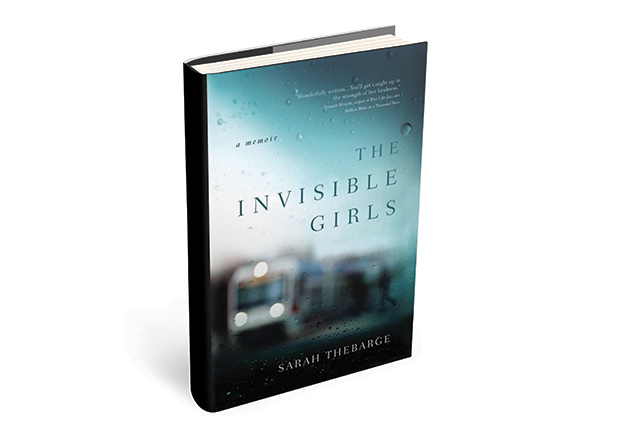After moving to Portland, Oregon, Sarah Thebarge blogged about her unexpected friendship with a Somali refugee woman and her five young daughters. As Thebarge prepared to sell the stories as a book to start a college fund for the girls, she realized that her own experience of being diagnosed with breast cancer at age 27—and the suffering and loss that came with it—was a part of their shared story. Thebarge, author of The Invisible Girls: A Memoir (Jericho Books), spoke with CT assistant editor Elissa Cooper about seeing people who go largely unnoticed and uncared for, discovering she herself was one of them.
Before you met the Somali family, did you have experiences with immigrant or refugee families?
No. I always had an affinity for people who were marginalized, but when I was in Portland, I was still so broken from getting over the cancer experience that I wasn’t looking to reach out to anybody. When I met the Somali family, it was personal. I loved them not specifically because they were refugees, but because they were beautiful girls created in God’s image.
There’s danger when you tell a story like this, because it tends to be the well-off white person swooping in and saving the black people. While the Somali family wasn’t well off in terms of money, they were incredibly wealthy in terms of resilience, joy, and love. While I was helping them get on their feet, they were loving me and helping me heal. Things in our typical mainstream culture don’t reach your soul the way that a little girl crawling in your lap or having a dance party to African music in the living room can. I helped them not freeze to death or starve to death, but they saved my life more than I could have ever saved theirs.
Aside from some support from family, friends, and the church, you helped the family on your own rather than rely on a local charity. What would you recommend that others do?
There’s not an exact formula, but the main thing is relationship. The biggest failing is not an institution that failed to take care of them; it is that we don’t love our neighbors. We don’t know our neighbors. We need to know them and not be afraid to engage with them.
We’re supposed to look to God. And God calls us to an incarnational love. He sent his Son in human flesh to dwell with us, to eat with us, to sit around the table with the sinners whom other people were afraid to touch. We’re supposed to be living our lives looking at the people around us, not the government above us.
Invisible refers to many different kinds of people. How can we recognize and care for them?
It’s not just how we see the people around us; it’s how we understand God. The reason why we care about invisible people is because God cares about us.
I always come back to the story of Hagar, this pagan who is pregnant with Abraham’s illegitimate child. She’s running away in the desert, where she’s probably going to die because she doesn’t have any resources. And God goes after her. Why would God care about this slave girl? But he goes after her, and he loves her, and he sees her. And she names him El-ro’i, which means “the God who sees.” That is an early example of the gospel: God comes after us in love and mercy. It’s an act of worship to live out the same story, to pursue someone in love and mercy who might not deserve it.
I had the literal experience of fleeing. I left the East Coast when my world fell apart. I realized that even though I had fled 3,000 miles away, God chased me across the country and encountered me when I was completely broken and didn’t think he loved me anymore. When I met the Somali girls, my instinct was to go after them, because I wanted them to have the experience that I had, of someone chasing you down because they see you and love you.
You received some awful theology on suffering when you were going through cancer. How do you define suffering now?
When Christians would tell me, “Your cancer is a gift,” I would say, “I don’t think it’s a gift. I think it’s part of the curse and it’s straight out of hell.” Anyone who has had cancer will tell you that. It’s awful. We tend to airbrush the Bible and throw Romans 8:28 on everything like a Band-Aid. But people who struggle in the Bible go through horrible things, both from sin and the consequences of others’ sin. God works all things for our good and his glory, but that doesn’t mean things feel good. It’s a long and exhausting process.
That is why it was important to include my story in the book. Redemption doesn’t mean anything unless you know the brokenness that got redeemed. If people want to display diamonds, they don’t put them on white. They put them on black because of the contrast. When we’re honest about our struggles and our pain, we are offering the black velvet backdrop. Only against that backdrop can God’s grace—these beautiful, sparkling diamonds—really shine.
What should people expect to take away from your book?
I hope that people don’t engage in the book and think, Oh, that’s someone else’s story and that’s great. Good for her. Good for them. I hope that people break through their bubbles, go knock on their neighbor’s doors, and have their eyes opened. I hope people will prayerfully consider how they can see and love invisible people. If each of us loved our neighbor, then we could all tell a story of the invisibles.











